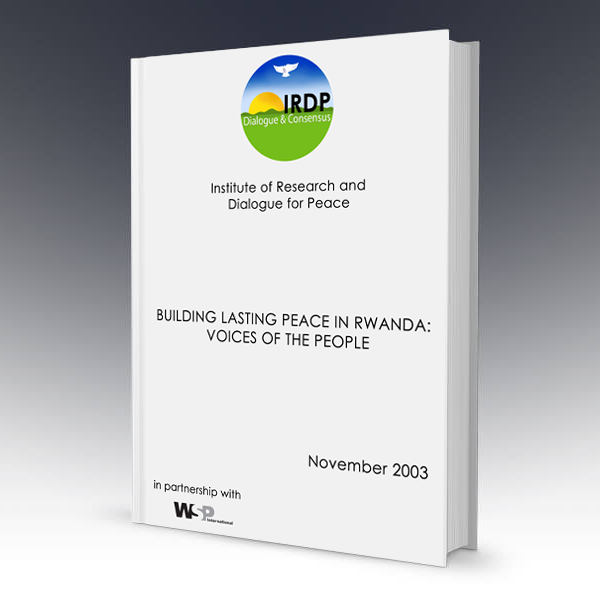INTRODUCTION
This document which the Institute of Research and Dialogue for Peace (IRDP) is making available today, contains a certain number of distinct features which deserve to be highlighted from the outset to enlighten and guide the reader. In this introduction, we will attempt to clarify the context in which this paper was prepared, explain why the IRDP was founded, describe its mandate and objectives, and explain its underlying philosophy.
After the 1994 genocide, the Government of National Unity devoted its efforts to healing the moral and physical wounds which had deeply affected Rwandan society. In particular, it placed special emphasis on building and consolidating peace.
To this end, many initiatives were adopted including, the creation of the National Commission for Unity and Reconciliation, the Human Rights Commission, the Constitutional Commission and the
National Programme for Poverty Reduction.
Peace building requires a commitment from the actors, both Rwandan and foreign, working in the country. The State cannot do everything alone. It is for this reason that initiatives, both private and public, were implemented to back up Government efforts. It is against this backdrop that the IRDP was established to provide a modest contribution to building lasting peace in Rwanda.


There are no reviews yet.